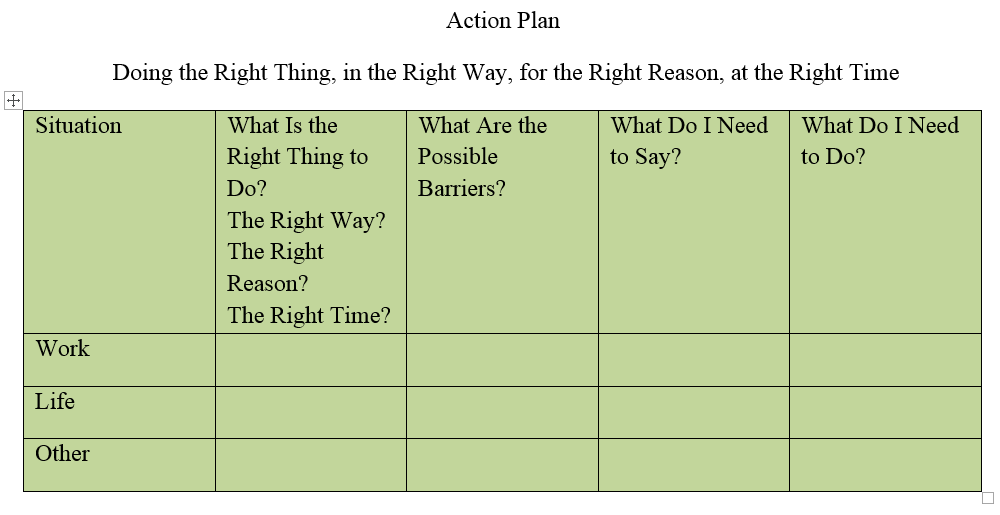Happiness: Aristotle’s Guide for Leaders
Currently, there is a lot of talk about the need for happiness in the workplace.
Leaders are expected to serve as models and facilitators (Leader to Leader Journal). For guidance, leaders can turn to Aristotle, the ancient philosopher. His profound yet easy-to-understand principles are consistent with contemporary professional views about the “ways and means” of happiness—where happiness is defined as enjoyment, sustained life satisfaction, and the capacity to flourish. Aristotle’s principles can help leaders clarify the big picture and can provide a framework for action-oriented strategies.
What does it take to be happy? According to Aristotle, you need to do these things:
- Realize that happiness isn’t a state—it’s a continuous, active process and includes the understanding that no one achievement (for example, a big promotion) guarantees happiness for life. As a leader, how do you define and pursue happiness?
- Assume personal responsibility for your actions. Are they productive or counterproductive? Make needed changes, and stop “blaming and shaming” yourself and others.
- Be aware when any area of your life is out of balance. Take the time to stop and rebalance.
- Use rational thought and reason to reduce emotional responses and facilitate balanced decision making. Find strategies to keep life’s pitfalls from becoming an emotional roller coaster or a significant barrier to productivity.
- Be mindful of—and attempt—“to do the right act in the right way, at the right time, and for the right reason.”
Practicing these principles can be challenging for anyone, but for those in leadership positions it may be especially daunting, since leaders need to model the attitudes and behaviors they want others to emulate. In some cases, leaders themselves may have unproductive behaviors that preclude happiness.
For example, many in the workplace believe the attainment of one particular goal—a high salary, a promotion, or an award—will bring happiness. But often these accomplishments lead to feelings of emptiness rather than fulfillment. If leaders aren’t aware of such false assumptions, they can’t model a balanced life.
Faulty thinking also occurs when a leader takes personal responsibility to an extreme, insisting: “I need to do everything myself,” even when this is counterproductive. Or conversely, leaders may blame everyone but themselves when things go wrong, spreading unproductive guilt and resentment.
Other leaders have an “all-or-nothing, now-or-never” mentality, a rigid thinking style, a perfectionist outlook, or a low tolerance for failure. These are barriers to a balanced life and sustained feelings of satisfaction.
Still other leaders may be emotionally volatile or approach problem solving impulsively, thereby short-circuiting rational thought and decision making. These behaviors can be coupled with executive-function difficulties such as poor time management, ineffective planning and prioritizing, or underdeveloped communication skills, all of which are detrimental to happiness.
Here are four steps to help leaders and their staffs move to a happier state:
- Discuss the view that seeking happiness is important for each person, regardless of rank or power. Why? Recent research shows that happiness is closely tied to work productivity, good social relationships, and physical and mental health. During workshops or seminars, include assessments of the current level of work happiness and overall life satisfaction. A simple self-check may be a valuable tool. For example, use a scale where “1” represents “least satisfied” and “5” represents “most satisfied.”
- Discuss Aristotle’s definition of happiness, which includes reflecting on the pursuit of happiness and taking action to achieve it. This enables individuals to contribute to their own satisfaction and to benefit society, which is each person’s right and responsibility. Use Aristotle’s guidelines when someone causes a problem with staff or coworkers. Rather than rushing to apologize, the responsible party can first reflect more deeply on the incident by asking
- Am I sensitive to the needs of others?
- Am I genuinely sorry for what happened?
Considering these questions results in a more deliberate process and promotes a more productive outcome.
- Describe and model self-management strategies for achieving better work/life balance. Demonstrate how to use logic to replace ineffective responses. For example, to counteract a negative thought, such as “I’ll never get it done,” learn to say: “Stop. I can use my logic. I used to react emotionally. Now I have techniques to overcome that barrier.” Employ problem-solving techniques in order to do the right thing, in the right way, for the right reason, at the right time.
- Provide the time to develop an action plan for making appropriate choices in spite of challenges. The chances of formulating a productive plan increase when leaders and staff focus on logic and the right goals.
Even contemplating happiness may be challenging when work pressures are high. However, it is worth the leader’s effort, because just discussing the notion of happiness at work can lead to more positive attitudes, better communication, and enhanced satisfaction and productivity.
*******************************
Dr. Markel Offers Value-Driven Keynotes and Breakouts.
Download Dr. Markel’s Speaker One Sheet: GeriMarkelCorporateOneSheet-Print
Book Dr. Markel to Speak at Your Next Event? Connect Today!

